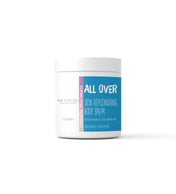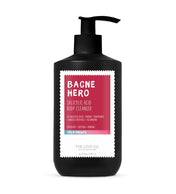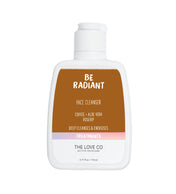How to Eliminate Pimples: Symptoms, Causes, and Remedies
Yash Raj |
Pimple removal methods, treating acne: causes and solutions, clearing up acne: symptoms and treatments, and pimple eradication strategies - these are the buzzwords that dance through the minds of many dealing with the frustration of unwanted breakouts. Pimples, those tiny but pesky skin imperfections, can be a source of insecurity and annoyance. But fear not! In this comprehensive guide, we'll delve deep into the world of pimples, understanding their causes, exploring symptoms, and most importantly, discovering effective remedies to bid them adieu.
The Battle Against Pimples: Symptoms Unveiled
Before diving into the nitty-gritty of pimple-fighting strategies, let's understand the enemy. Pimples, also known as acne vulgaris, are those bothersome blemishes that pop up on your skin, seemingly out of nowhere. They often make their debut during puberty but can persist well into adulthood.
Common Pimple Symptoms
Redness and Inflammation Pimples often appear as angry, red bumps on the skin. The redness is a result of inflammation caused by clogged pores.
Whiteheads and Blackheads These are two common types of pimples. Whiteheads occur when pores are completely blocked, while blackheads happen when the pore is partially blocked, and the sebum oxidizes, turning black.
Pustules and Papules These are more severe forms of pimples. Pustules are filled with pus and can be painful, while papules are small, raised, and often tender to the touch.
Cystic Acne The most severe type, cystic acne, forms deep beneath the skin's surface and can cause painful, large lumps that may leave scars.
Itching or Burning Sensation Pimples can be accompanied by itching or a burning sensation, making them even more annoying.
Now that you can identify these pesky intruders let's explore why they make an appearance in the first place.
Unearthing the Culprits: Causes of Pimples
Pimples aren't just random visitors; they have their reasons for showing up uninvited. Understanding these causes can be the first step towards effective pimple management.
Excess Sebum Production: Sebaceous glands in your skin produce an oily substance called sebum. Sometimes, these glands can go into overdrive, leading to excess sebum production. This excess sebum can mix with dead skin cells and clog your pores, creating a breeding ground for pimples.
Hormonal Fluctuations Hormonal changes, especially during puberty, menstruation, pregnancy, or when taking certain medications, can trigger acne. Hormones like testosterone can increase sebum production.
Bacterial Infection: Propionibacterium acnes, a type of bacteria that lives on your skin, can multiply rapidly in clogged pores, leading to inflammation and pimple formation.
Diet and Lifestyle: Your diet and lifestyle choices can also play a role. High-glycemic foods, dairy products, and stress have all been linked to an increased risk of acne.
If your parents had acne, you might be genetically predisposed to it.
Clearing the Battlefield: Pimple Eradication Strategies
Now that we've dissected the symptoms and causes of pimples, it's time to explore the battlefield strategies to eliminate these unwelcome guests. Here are some effective pimple removal methods and treatments:
This superhero ingredient dives deep into your pores, exfoliating them and helping to unclog those pesky blockages. It's particularly effective for blackheads and whiteheads.
Benzoyl Peroxide Known for its antibacterial properties, benzoyl peroxide can help kill the bacteria responsible for pimple formation.
These vitamin A derivatives help unclog pores, reduce inflammation, and promote skin cell turnover.
Oral Medications
In cases of severe acne, oral antibiotics may be prescribed to reduce inflammation and control bacterial growth.
: For individuals whose acne is triggered by hormonal fluctuations, certain birth control pills can help regulate hormones and reduce breakouts.
Lifestyle Adjustments
Diet Cutting back on high-glycemic foods and dairy products may help reduce acne.
Stress Management Stress can exacerbate acne, so incorporating stress-reduction techniques into your daily routine, such as meditation or yoga, can be beneficial.
Skincare Routine
Cleansing: Regularly cleansing your face helps remove excess oil and dirt, preventing pore blockages.
Moisturizing Contrary to popular belief, moisturizing is essential, even for acne-prone skin. Opt for non-comedogenic (won't clog pores) products.
Sun Protection Use sunscreen daily to protect your skin from the harmful effects of UV rays. Some acne medications can make your skin more sensitive to the sun.
Professional Treatments
*Chemical Peels A dermatologist can perform chemical peels to exfoliate the top layer of skin, promoting cell turnover and unclogging pores.
Microdermabrasion This procedure uses a machine to exfoliate the top layer of skin, improving overall skin texture.
Laser Therapy Laser treatments can target and destroy the sebaceous glands that produce excess oil.
The Power of Consistency and Patience
It's crucial to note that pimple eradication strategies require time and consistency. You won't wake up with flawless skin overnight. Be patient with your skin and give treatments time to work. Additionally, consulting a dermatologist is a wise move, as they can recommend personalized treatments tailored to your specific skin type and condition.





